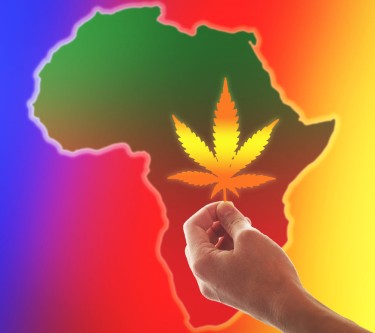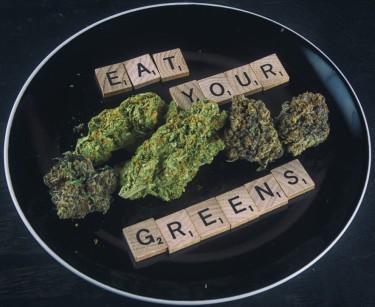
How the weed world turns
European Commission sets limit for THC in hemp foods and beverages
The European Commission (EC), the agency responsible for the cannabis laws of all member states of the European Union, has just released a set of guidelines regarding the highest THC limits that will be legal in hemp seeds for use in food and beverages.
The regulations were two-tiered; The first, approved by the Standing Committee on Plants, Animals, Food and Feed, stipulates that oil extracted from hemp seeds should contain no more than 7.5 mg/kg of hemp. Meanwhile, the second tier states that if dried foods are to contain hemp, such as protein powder and hemp flour made from hemp seeds, the THC content should be no more than 3 mg/kg.
The European Industrial Hemp Association (EIHA) says that prior to these changes, no country-to-country ceiling was imposed by the EU. Before that, there were only guidelines set by the European Food Safety Authority since 2015, but they were not legally binding. “No harmonized limit values mean that it is impossible for operators to act,” said Lorenza Romanese, EIHA Managing Director of FoodNavigator.
In addition, since there were previously no common limit values for the EU, there were some countries such as Italy that introduced stricter values, explained Romanese. “In Belgium the approach was different. They had higher scores. This would have meant that Belgium would have to stick to Italy and all other member states,” she said.
“This initiative finally puts an end to the fragmentation of the internal market and is likely to give a further boost to investments in this sector,” EIHA said.
Cannabis growing in New Zealand’s Parliament Garden
After several weeks of illegal occupations that led to riots in the New Zealand Parliament, cannabis seedlings were found sprouting in the rose gardens.
The small green leaves were spotted and identified by a Wellington local, who then posted what he found on social media. Although he preferred to remain anonymous, a Parliament groundsman confirmed to RNZ, a national broadcaster, that the leaves were “a few cannabis seedlings” which are believed to have left some protesters behind, reports The Guardian .
“A lot of seeds had been scattered, including by the protesters,” they said.
Cannabis plants are still illegal in New Zealand and have since been banned after House Speaker Trevor Mallard demanded that “the weeds must be pulled out”.
The 23-day protests had nothing to do with cannabis; These were actually oppositions to vaccination mandates, although unfortunately they ended in a violent uprising.
Easier access to cannabis leads to higher rates of use in Australia
According to the Therapeutic Goods Administration (TGA), prescriptions for MMJ in Australia have doubled in the past two years, with over 122,000 prescriptions issued in 2021. Those are significant increases in just a few years considering only about 2,500 prescriptions were issued in 2018, reports ABC Australia.
According to Melbourne GP Vicki Kotsirilos, the first authorized MMJ GP prescriber in the country, MMJ prescriptions have increased primarily because TGA has streamlined their application process and patient numbers have skyrocketed. “In the beginning it was extraordinarily difficult. I haven’t been able to get very many patients,” she said. “Since late 2018, the TGA has introduced an online permitting system and extended the duration of permits from three to six months to one year and now to two years,” she explained.
She added that a permit is required for all medicinal cannabis products, although they are now widely prescribed. This means that a GP can only prescribe a product if it belongs to an approved cannabinoid category, such as: B. a CBD treatment for the specific patient. There are currently only two cannabis-based medicines approved for the Australian Medicines Registry. One of them is used to treat rare and drug-resistant forms of epilepsy, the other to treat multiple sclerosis.
Cannabis could soon be legalized in Bermuda
A controversial law has just been passed in Bermuda’s House of Assembly, and if it gets royal assent from the governor, it will be legal to grow and sell marijuana, the Royal Gazette reports.
The bill, dubbed the Cannabis Licensing Act 2022, would create a regulated structure for the cultivation and sale of cannabis. Multiple licenses would need to be obtained through a licensing authority, which would then allow people to own, harvest, grow, export and sell more cannabis. The bill, introduced by Home Secretary Walter Roban, who said marijuana’s illegal status was “an unjust colonial legacy” and evidence of “systemic racial differences.”
Mr Roban, representing Attorney General Kathy Lynn Simmons, said policy changes were long overdue. “We need a radical rethink – the increasing legalization is not that radical,” he said. He also states that the public consultation has “shown an overwhelming appetite for changes to our cannabis laws – the public accepts that there should be changes to the regime”.
It is currently illegal in Bermuda to possess more than 7 grams of cannabis. But even if the law is passed, smoking marijuana in public will still be illegal except in areas specifically designated for the act. Also, it will still be illegal to sell the drug to minors under the age of 21.
FOR MORE CANNABIS WORLD UPDATES, READ THIS…

THE AFRICAN CANNABIS NEWS REPORT, READ ABOUT IT HERE!
OR..

THE EU SET THE THC LIMITS FOR CANNABIS FOOD AND DRINKS!

Post a comment: